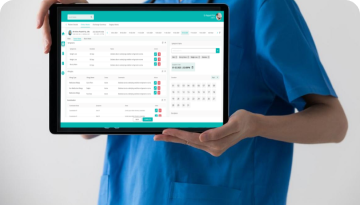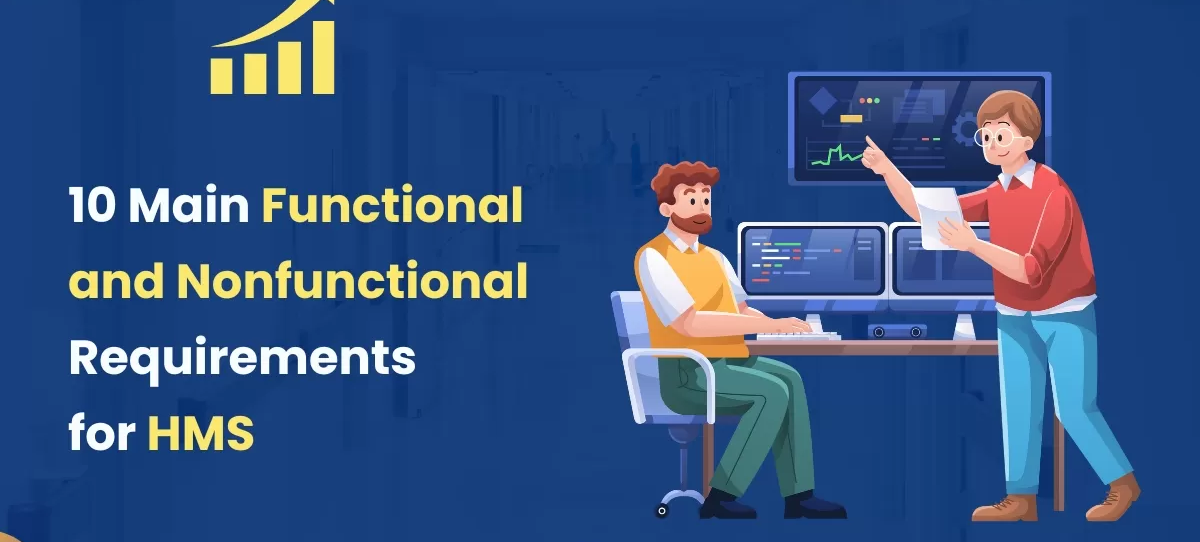
In the modern era of healthcare, the integration of Electronic Health Records (EHR) within Hospital Information Management Systems (HIMS) has become not just advantageous but increasingly essential. This transformation is propelled by the need for more efficient, accurate, and secure management of patient data.
In this article, we delve into the pivotal role of EHR within HIMS, exploring its benefits, challenges, and the overarching impact on healthcare delivery.
Understanding HIMS and EHR
Hospital Information Management Systems (HIMS)
HIMS refers to a comprehensive, integrated system designed to manage all aspects of a hospital’s operations, including administrative, clinical, financial, and legal functions. It typically includes modules for patient registration, appointment scheduling, billing, inventory management, pharmacy management, laboratory information, radiology information, and more. HIMS aims to streamline processes, improve efficiency, enhance patient care, and ensure compliance with regulatory requirements.
Electronic Health Records (EHR)
EHR translates a patient’s traditional paper chart into digital form. It comprises detailed records of a patient’s medical history including diagnoses, prescribed medications, treatment plans, immunization dates, allergies, radiology images, and laboratory test results. EHRs allow healthcare providers to access and share patient information securely across different healthcare settings, such as hospitals, clinics, laboratories, and pharmacies. EHRs facilitate better coordination of care among healthcare providers, reduce medical errors, and empower patients to participate in their own healthcare decisions.
The Importance of Integrating EHR within HIMS
By linking EHR with HIMS, healthcare institutions can experience a multitude of benefits that include:
- Enhanced Data Accessibility and Interoperability: Integrating EHR within HIMS ensures that all relevant patient data is consolidated into a single, accessible platform. This streamlines the process of retrieving patient information across various departments within the healthcare facility, promoting better coordination of care. Moreover, interoperability features enable seamless exchange of patient data between different healthcare providers and systems, improving care continuity and patient outcomes.
- Improved Efficiency and Workflow Optimization: By integrating EHR within HIMS, healthcare facilities can automate many administrative and clinical processes, leading to improved operational efficiency and workflow optimization. Tasks such as patient registration, appointment scheduling, prescription management, and documentation can be streamlined, reducing the burden on healthcare staff and minimizing the risk of errors.
- Enhanced Patient Safety and Quality of Care: EHRs provide healthcare providers with access to comprehensive and up-to-date patient information, including medical history, medication lists, allergies, and test results. This enables clinicians to make more informed treatment decisions, reduce medication errors, and avoid adverse drug interactions. Additionally, features such as clinical decision support systems (CDSS) embedded within EHRs can help identify potential risks and provide evidence-based recommendations to improve patient safety and quality of care.
- Facilitated Regulatory Compliance and Reporting: Integrating EHR within HIMS helps healthcare facilities ensure compliance with regulatory requirements and reporting standards. EHR systems can generate accurate and timely reports on various quality metrics, billing codes, and regulatory mandates, simplifying the process of auditing and demonstrating adherence to healthcare regulations.
- Empowered Patient Engagement and Participation: EHRs enable patients to access their own health records, communicate with healthcare providers, schedule appointments, and view lab results online. This fosters greater patient engagement and empowerment, as individuals become active participants in their own healthcare management. Access to EHRs also promotes transparency and trust between patients and healthcare providers, ultimately leading to improved patient satisfaction and loyalty.
Core Capabilities of an Electronic Health Record (EHR)
The essential core capabilities of an Electronic Health Record (EHR) system typically include:
- Patient Demographics: This includes basic information about patients such as name, age, gender, contact information, and insurance details.
- Clinical Documentation: EHR systems should allow healthcare providers to create, store, and retrieve clinical notes, progress reports, medical histories, diagnoses, treatment plans, and other documentation related to patient care.
- Order Entry/Prescribing: The ability to electronically prescribe medications, order laboratory tests, imaging studies, referrals to specialists, and other medical services.
- Clinical Decision Support: With EHR systems, healthcare providers benefit from clinical decision support tools such as drug interaction checks, allergy alerts, reminders for preventive care and screenings, and evidence-based guidelines, aiding them in making informed decisions.
- Interoperability: Electronic Health Record systems should be able to exchange data with other healthcare systems and providers securely and efficiently. Interoperability enables seamless sharing of patient information across different healthcare settings and platforms.
- Patient Portals: EHRs often include patient portals that allow patients to access their medical records, schedule appointments, request prescription refills, communicate with their healthcare providers, and view educational materials.
- Clinical Quality Reporting: With EHR, reports can be generated on clinical quality measures and outcomes to support quality improvement initiatives, regulatory compliance, and participation in incentive programs.
- Privacy and Security: EHR systems must comply with regulations such as the Health Insurance Portability and Accountability Act (HIPAA) to ensure the privacy and security of patient health information. This includes features such as access controls, encryption, audit trails, and regular security updates.
- Workflow Management: Efficient workflows within healthcare organizations should be supported by EHRs, streamlining tasks such as appointment scheduling, patient check-in, documentation, billing, and coding.
- Integration with Ancillary Systems: EHRs may integrate with other healthcare systems and technologies such as practice management software, billing systems, imaging systems, and electronic prescribing networks to facilitate comprehensive patient care and administrative processes.
These core capabilities are fundamental to the functioning of an EHR system and play a crucial role in improving patient care, clinical outcomes, and operational efficiency in healthcare settings.
Final Thought
To encapsulate, the integration of Electronic Health Records (EHR) into Hospital Information Management Systems (HIMS) is essential in modern healthcare. The synergy between EHR and HIMS drives advancements in care quality, operational efficiency, and patient satisfaction.

